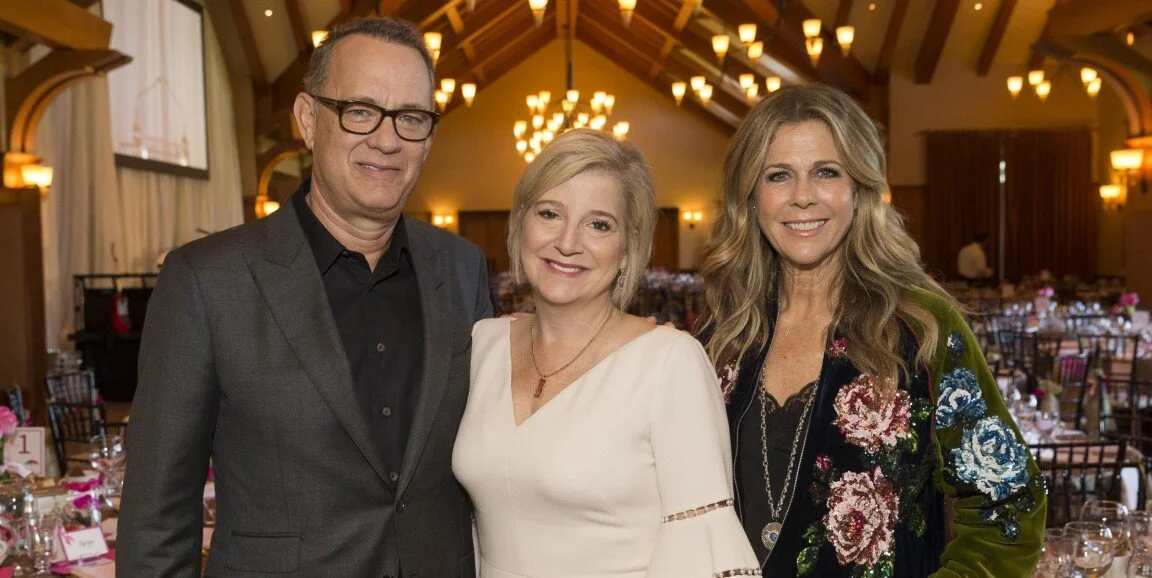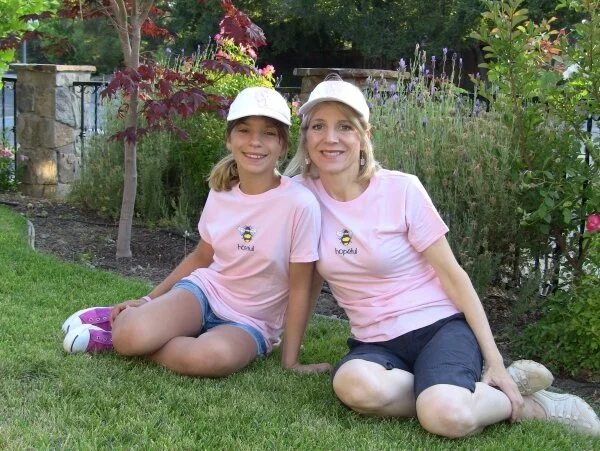Almanac News
Celebrating a Richer Life with Dr. Ellie Guardino
Grateful to have been a part of this one - Dr. Ellie Guardino joins A Richer Life Podcast and takes us through her beautiful life dedicated to oncology, family, faith and love as she faces her own battle with Cancer. This is a true celebration of a Champion on SO many levels.
Blessings to all for a Thanksgiving where we can count the small things as the big things which they truly are!
Ellie Guardino—Genentech
by Ben Adams
Ellie Guardino has had an illustrious career. She started out in academia, training and working at the best universities in the world on cutting-edge cancer research, before moving over to Roche’s biologics arm Genentech—one of, if not the most, respected oncology biotechs in the world.
But it's not just her success that strikes you: During the interview for this profile, Guardino matter-of-factly says she has stage 4 melanoma. Her follow-up to that statement is not about her, but about how this diagnosis, which she lives with while still working, has made her truly understand the patient journey—and that's experience she is now using at Genentech.
Going back to the start, Guardino began with “many opportunities and strong female mentors,” she said, but she was exposed as a young child to the disease she would in the future fight both professionally and personally.
“I was influenced early on by having a lot of people at a young age to family members with cancer, as well as friends. I had a friend who carried a gene mutation which meant members of her family died; her twin brother, in fact, died at just 16 from this.
“Her dad then died young of colon cancer, and two other brothers died of cancer, again at young age. And of course she carries the gene, as does her daughter, so she also carries that fear with her every day. That was, to say the least, impactful for me and my life.”
That was a big motivator early on, and after leaving UCLA, she helped develop a melanoma cancer drug. This, she said, was “an amazing opportunity to be one of the first people to work on monoclonal antibodies.”
The early experience helped her to see where the clinical needs were for cancer, and where the gaps are for patients.
Guardino went to Harvard for her residency but ended up at Stanford, which is well known for its work on cancer immunotherapy, where she did her fellowship in oncology, and then stayed on.
She helped work on early translational and phase 1/2 work, but said she was yearning “to see things through to phase 3,” something that most academic centers do not typically have the funds or resources to do.
That's where Genentech comes in. “They had an opportunity for me to work on the [breast cancer antibody-drug conjugate] Kadcyla program. I had been pretty heavily involved on HER2-positive breast cancer work up until that point,” she said, and took the opportunity for it to be taken past the early clinical stage, and onto approval.
She worked with the FDA on a key trial for the drug, helping show its inherent value, and then went on to be responsible for the global filing for Kadcyla, which was eventually approved for certain HER2-positive breast cancer patients.
“So that was an incredible journey: to take things from bench to bedside, and seeing the impact of not just developing a drug with potential, but seeing that realized by being part of a team that can deliver it to patients.” She then went to head up Genentech’s breast cancer focus, working on a range of other drugs, including Perjeta, and a new formulation of the original HER2-positive breast cancer med Herceptin.
After spending her career developing drugs for patients, she now has a much deeper and personal sense of what it means to actually be a patient. A few years ago, she received her melanoma diagnosis, and the disease has unfortunately spread.
“With the support of Genentech, I have been able to continue to try and create a tremendous impact in the work I am doing, despite fighting this disease,” she said. “And I think this has given me an extra hat: I have the research hat; I have the development hat; and now I have the patient hat. It just gives me a unique perspective on why it so critical that we break down barriers and we do better at developing drugs faster.”
Medicine with Dr. Ellie Guardino
I chat with Dr. Ellie Guardino, an inspiring breast medical oncologist and research scientist to chat about her strict childhood and school life, the importance of a loving support system, and her finding of purpose and self-worth.




